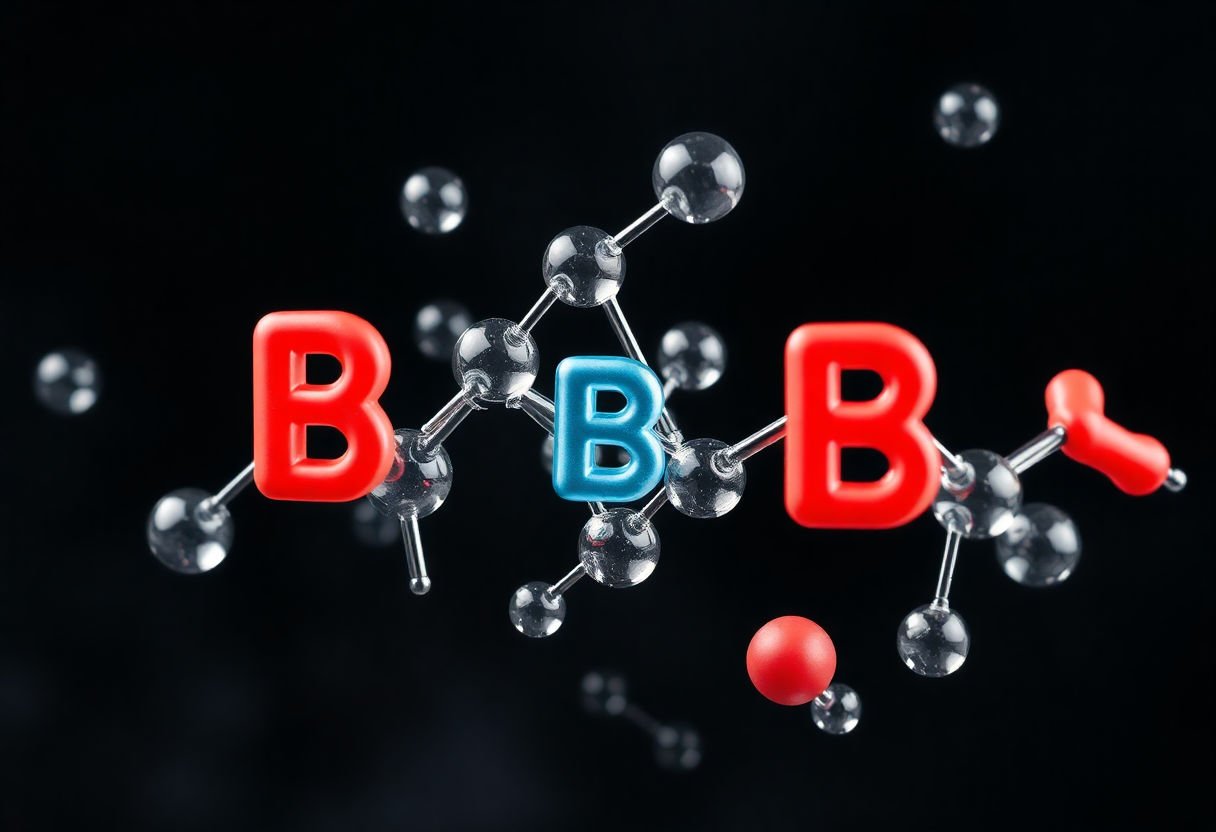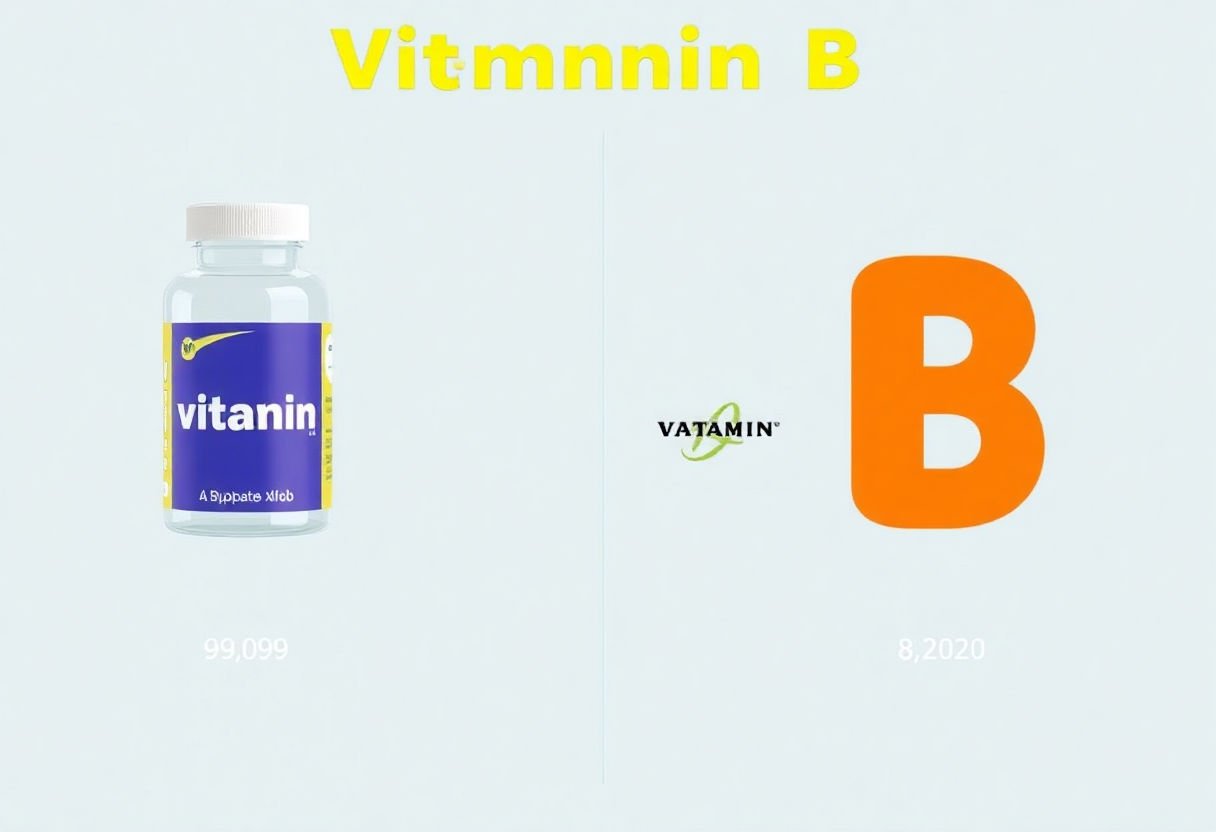Incorporating the right Vitamin B complex into your child’s diet is essential for fostering optimal growth and development. This nutrient-rich group of vitamins plays a crucial role in supporting both cognitive and physical functions, crucial during the formative years. From ensuring energy production and a healthy nervous system to aiding emotional stability, Vitamin B complex is indispensable for children’s health. As parental awareness of nutritional needs grows, understanding how to choose the best Vitamin B complex supplement becomes paramount. This comprehensive guide will help you navigate key considerations, benefits, and safe supplementation practices to enhance your child’s well-being.
Key Takeaways
- Selecting the right kids Vitamin B complex is vital for promoting their cognitive and physical development.
- Ensure the supplement is age-appropriate and has the necessary nutritional content suited for your child’s needs.
- Consider the reliability of the brand and consult healthcare providers to confirm supplementation necessity.
- Be aware of potential side effects and adhere to recommended dosages to ensure safe use.
- Complement supplements with a balanced diet to naturally incorporate the benefits of Vitamin B complex.
What is Vitamin B Complex?

Vitamin B complex refers to a group of eight essential vitamins that play a significant role in maintaining bodily functions and boosting overall health. Each of these vitamins has unique benefits and contributes to various physiological processes. The eight vitamins in the B complex are:
- Thiamine (B1): Essential for converting nutrients into energy and plays a critical role in cellular function and development.
- Riboflavin (B2): Important for energy production and breaking down fats, drugs, and steroid hormones.
- Niacin (B3): Contributes to cellular communication and DNA repair and is vital for producing energy in cells.
- Pantothenic Acid (B5): Crucial for the creation of coenzyme A, necessary for fatty acid metabolism.
- Pyridoxine (B6): Involved in amino acid metabolism, red blood cell production, and neurotransmitter synthesis.
- Biotin (B7): Supports healthy skin, hair, and nails and plays a role in energy metabolism.
- Folate (B9): Essential for DNA synthesis and repair, and crucial during periods of rapid growth, such as pregnancy and childhood.
- Cobalamin (B12): Necessary for blood formation, brain health, and DNA synthesis.
Each vitamin within the B complex is water-soluble, meaning they are not stored in the body and must be consumed regularly through diet or supplements. Including a sufficient amount of Vitamin B complex in children’s nutrition is vital for their growth, energy metabolism, and cognitive development. A deficiency can lead to a host of health issues, emphasizing the need for awareness and proper dietary management for optimal child health.
Benefits of Vitamin B Complex for Kids

The Vitamin B complex is an integral component of ensuring optimal health and development in children. This group of vitamins plays a crucial role in supporting various physiological functions that are essential during the growing years of a child’s life.
Enhancing Cognitive Development: One of the significant benefits of Vitamin B complex is its impact on cognitive functions. Vitamins such as B1 (thiamine), B9 (folate), and B12 (cobalamin) are known to contribute to brain development. These vitamins support the production of neurotransmitters, which enhance communication between brain cells, thereby improving memory and concentration.
Boosting Energy Levels: Children are always on the move, and having sufficient energy is vital for their active lifestyles. Vitamin B complex helps in the conversion of carbohydrates, fats, and proteins into energy. Particularly, vitamins B2 (riboflavin), B3 (niacin), and B5 (pantothenic acid) are pivotal in energy metabolism, ensuring that children remain energetic throughout the day.
Supporting the Immune System: A robust immune system is vital for keeping illnesses at bay. Vitamins such as B6 (pyridoxine) play a critical role in bolstering immune defenses. They aid in the production of white blood cells, which are essential in fighting infections.
Promoting Healthy Growth and Red Blood Cell Production: Vitamins B6, B9, and B12 are instrumental in the formation of red blood cells. Adequate levels of these vitamins ensure proper oxygen transport, which is crucial for growth and overall health. This function is particularly important in preventing anemia, a condition that can impair growth and energy levels in children.
In summary, incorporating a Vitamin B complex into a child’s regimen can have profound beneficial effects on their cognitive development, energy balance, immune health, and growth, thereby supporting their overall well-being.
Identifying the Need for Supplementation
Identifying whether your child needs a Vitamin B complex supplement involves a nuanced approach that includes observing dietary habits, recognizing signs of deficiency, and seeking professional guidance.
Children often have varying dietary habits, and maintaining a balanced diet can sometimes be challenging. If your child’s diet lacks sufficient sources of Vitamin B, such as whole grains, eggs, and meats, supplementation might be necessary. Monitoring daily food intake can provide insights into potential gaps in their nutritional needs.
Some common signs of Vitamin B deficiency in children include fatigue, irritability, and decreased concentration. It is important to understand that these symptoms may be subtle and overlap with other conditions. Thus, it is crucial not to self-diagnose but to consult a healthcare professional.
Pediatricians or dietitians are integral in assessing whether supplementation is right for your child. They can perform tests to confirm a deficiency and provide advice tailored to your child’s specific needs. As Dr. Marilyn Jane, a pediatric nutrition specialist, states, “A thorough consultation ensures the choice to supplement is both necessary and beneficial.”
When considering supplementation, factors such as your child’s age, health conditions, and specific dietary restrictions should be taken into account. A healthcare provider will evaluate these considerations to ensure that a Vitamin B complex supplement would not only bridge nutritional gaps but also enhance overall well-being without adverse effects.
Ultimately, the decision to introduce a Vitamin B complex supplement should be informed and supported by professional advice, ensuring your child’s health and safety are prioritized.
Factors to Consider When Choosing a Product

When selecting the best kids Vitamin B complex for your child, several factors demand close attention to ensure optimal health benefits and safety. Firstly, consider the age-appropriateness of the product. Children’s nutritional needs vary significantly by age; therefore, choosing a vitamin tailored for a specific age group is crucial. Ensure the supplement provides the right dosage corresponding to your child’s age to avoid either deficiencies or toxicity.
Another important consideration is the form of the vitamin. Kids’ Vitamin B complexes come in various forms, such as liquids, chewable tablets, gummies, and capsules. Select a form that your child is comfortable with and likely to take consistently. For younger children, gummies and liquids are often preferred due to their ease of consumption and taste appeal.
Brand reliability and reputation are essential. Opt for well-established brands known for adhering to high manufacturing standards. Look for certifications or approvals from reputable health organizations, which signify quality assurance.
Check the nutritional content of the product. A comprehensive product should ideally contain all eight B vitamins: B1 (thiamine), B2 (riboflavin), B3 (niacin), B5 (pantothenic acid), B6 (pyridoxine), B7 (biotin), B9 (folic acid), and B12 (cobalamin). The label should also confirm that these vitamins are present in amounts appropriate for your child’s dietary needs.
In summary, the right Vitamin B complex should be age-appropriate, in a suitable form, from a reliable brand, and contain a balanced nutritional profile. These considerations play a pivotal role in ensuring that the supplement effectively supports your child’s growth and development.
Comparing Popular Kids Vitamin B Complex Brands

To guide you in selecting the best Vitamin B complex for your child, let’s compare some of the most popular brands available in the market today. Flintstones Gummies is a well-known option that offers a palatable gummy form, making it easy for kids to chew and swallow. It provides a balanced dose of essential B vitamins crucial for energy metabolism and nervous system health.
Nature’s Way Alive! is prized for its whole food blend, which provides not only standard B vitamins but also fruit and vegetable powders for an added nutritional boost. This option may be particularly appealing to parents looking for more natural ingredients.
When considering a liquid form, MaryRuth Organics offers a liquid multivitamin enriched with B vitamins, which can be advantageous for younger children who may struggle with solid supplements. The liquid form allows for customizable dosing and easy ingestion.
For families emphasizing organic and allergen-free products, Garden of Life’s Kids Vitamin Code provides chewables made from raw, organic fruits and vegetables, offering a comprehensive B vitamin profile with the assurance of quality and purity.
In selecting between these brands, consider factors such as ingredient transparency, whether the vitamins are free of artificial preservatives or allergens, and if they suit your child’s specific dietary needs. Consult with healthcare providers for personalized recommendations, ensuring the chosen supplement aligns with your child’s health requirements and lifestyle. Such careful consideration will help ensure that your child’s intake of B vitamins supports their overall growth and health.
Potential Side Effects and Precautions

Understanding the potential side effects and necessary precautions when administering Vitamin B complex supplements to children is crucial for ensuring their safety and well-being. While these supplements can offer numerous health benefits, certain adverse reactions may occur, especially when dosages are exceeded or individual sensitivities are present.
Common Side Effects:
- Digestive Disturbances: Some children may experience mild digestive issues such as nausea, upset stomach, or diarrhea.
- Skin Reactions: Allergic reactions such as rashes or itching can occasionally occur.
- Headaches: Overconsumption could lead to headaches or dizziness.
Severe Reactions:
In rare instances, more severe side effects may arise, necessitating immediate medical attention. These include:
- Breathing difficulties
- Swelling around the face or throat
- Severe dizziness or fainting
Precautions:
-
Consultation with Healthcare Providers: It is paramount to consult with a pediatrician before starting any supplement regimen. This ensures that the supplement is necessary and well-tailored to your child’s needs.
-
Adhere to Recommended Dosages: Always follow the dosage instructions provided on the product label or by healthcare professionals to avoid toxicity.
-
Monitor for Allergic Reactions: Keep an eye on any signs of allergic reactions, especially when initially introducing the supplement.
-
Choose Quality Products: Opt for reputable brands that adhere to high-quality standards to minimize the risk of contaminants and ensure the efficacy of the vitamins.
By being informed about the possible side effects and implementing proper precautions, parents can confidently incorporate Vitamin B complex into their child’s health regimen, fostering a beneficial impact on their growth and development.
Incorporating Vitamin B Complex in Diet
Incorporating Vitamin B complex into a child’s diet can be done effectively with a combination of natural food sources and thoughtful supplementation. Striking the right balance between these can ensure your child receives the optimal amount of these essential nutrients without overdependence on pills or syrups.
Natural Food Sources
A diet rich in diverse nutrients supports the intake of Vitamin B complex naturally. Some excellent sources include:
- Whole Grains: Foods like oats, brown rice, and whole wheat bread are packed with various B vitamins, particularly B1, B2, and B3.
- Dairy Products: Milk, cheese, and yogurt provide a good amount of B2, along with other essential nutrients.
- Lean Meats and Fish: Chicken, turkey, and fish such as salmon are high in B6 and B12, crucial for energy levels and brain development.
- Leafy Greens: Spinach, kale, and broccoli are not only rich in B vitamins but also supply fiber and antioxidants.
Supplementation Considerations
While a balanced diet is paramount, supplements can help bridge nutritional gaps, especially for picky eaters or those with dietary restrictions. It’s advisable to choose:
- Age-Appropriate Formulas: Ensure the dosage and formulation are suitable for your child’s age and dietary needs.
- Flavor and Form Preferences: Chewable tablets, gummies, or liquid forms can make supplementation a more enjoyable experience for children.
- Quality and Safety: Opt for reputable brands that adhere to quality standards and have transparent ingredient lists.
By integrating these strategies, you can help maintain your child’s health and well-being, contributing to their overall growth and development.
Conclusion
Selecting the best kids Vitamin B complex is crucial for ensuring the overall health and development of your child. By understanding the vital role of this nutrient and carefully weighing factors like age-appropriateness and brand reliability, parents can make informed decisions. As families embrace these supplements, they pave the way for better cognitive and physical growth in their children. It’s essential to remain vigilant about potential side effects and incorporate these vitamins into a balanced diet. With the right approach, parents can secure a healthier future for their kids, fostering well-being and robust development.
Frequently Asked Questions
What should I look for when choosing a kids Vitamin B complex supplement?
Look for products that are age-appropriate with clearly listed nutritional content. Ensure the brand is reliable and considers any specific dietary needs or allergies your child may have.
Can my child get enough Vitamin B complex from their diet?
It is possible for a child to obtain sufficient Vitamin B complex from a balanced diet rich in whole grains, legumes, vegetables, and protein sources. However, certain diet restrictions and food preferences may necessitate supplements.
How can I tell if my child needs a Vitamin B complex supplement?
Consult a healthcare provider to evaluate your child’s dietary intake and any symptoms of deficiencies. Professional advice ensures a safe and effective supplementation plan.
What are the potential side effects of Vitamin B complex supplements in children?
Though generally safe, some children may experience side effects such as mild digestive discomfort or allergic reactions. Monitoring your child’s response to the supplement is crucial.
Are all Vitamin B complex supplements safe for children?
Not all supplements are created equally; some may contain added sugars, artificial colors, or allergens. Selecting a product specifically formulated for children is essential for safety and efficacy.


